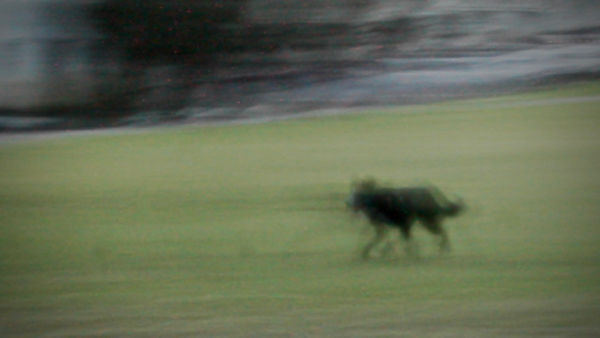[This is one of my more personal posts. If they’re not your thing, and you’d rather wait until there’s a podcast or a whinge about the Attorney-General or something, then skip this one, and come back on Monday.]
 “Arriving at @blackdoginst. I hope mine is a kelpie,” I tweeted as I arrived at the Black Dog Institute on Wednesday morning. Well, I didn’t get a kelpie. But I didn’t get what I’d expected either.
“Arriving at @blackdoginst. I hope mine is a kelpie,” I tweeted as I arrived at the Black Dog Institute on Wednesday morning. Well, I didn’t get a kelpie. But I didn’t get what I’d expected either.
Australia’s Black Dog Institute is a “world leader in the diagnosis, treatment and prevention of mood disorders,” and they’ve developed their own model of depression. So science, yes, but no dog for me at all, kelpie or otherwise.
This was part of my plan to end five years of stagnation and unlock all the little boxes into which I’d stashed so many of the irritating, inconvenient and challenging things in my life. Black Dog’s Depression Clinic would unravel the threads of depression and post-traumatic stress disorder (PTSD) and other anxieties, and put together a management plan so that I could move forward.
I’d already done the clinic’s Online Mood Assessment Program (MAP), a massive questionnaire that dug deep into my past and into my psyche. Now it was time for the clinical assessment, where a consultant psychiatrist would dig straight down into the juicy bits of my mind.
My quip about the kelpie was to distract myself. As I arrived at Black Dog, I’d suddenly realised that the clinical assessment itself would dig up memories. It wouldn’t be traumatic — all that stuff is blood under the bridge for me now — but it wouldn’t be trivial either.
Well, the psychiatrist knew his stuff. Over the course of an hour, question after question quickly determined what events, factors, behaviours, responses and patterns were jumbled together in my head, and which were not.
His conclusion?
Sure, there was post-traumatic stress in there, but that was a separate issue. The depression could be put aside too, he said, because depression wasn’t it.
His diagnosis was Bipolar II disorder, pronounced “type two bipolar disorder” — and here’s the Wikipedia entry, and the entry for bipolar spectrum disorders generally, which includes things like Cyclothymia.
Well, I didn’t expect that!
It does explains a few things, though — such as me scheduling my work in ways that keep turning out to be overly-ambitious. No, I’m not at all surprised. My reserve GP had raised it as a possibility a few years back. I’d already noticed the cyclic aspects. And anti-depressants have never really worked for me anyway.
So, no shock. And no drama. Like so many people who’ve been through Black Dog’s processes, there’s actually the positive feeling of having finally solved a puzzle. Probably. But it’s still a distinct shift in thinking, and I’ve spent the last couple of days letting it sink in.
That’s why I took Wednesday afternoon off, and why I dropped that night’s planned podcast recording. I’ll reschedule that podcast soon. Stay tuned.
Meanwhile, things are going exactly to plan. Thanks to the Black Dog Institute, I have the deeper diagnosis, just an unexpectedly different one. And I have a management plan, also unexpectedly different — although I haven’t seen it yet, because as protocol demands, it was sent to my GP.
The next step happens on Monday, when my GP explains the plan. I’ve been warned it’s a slow process, so I’m looking forward to getting things moving.
Note: People often get Black Dog confused with beyondblue, a mental health awareness, advocacy and support organisation based in Melbourne and focusing on depression and anxiety disorders. The Black Dog Institute is a clinical and medical science research organisation affiliated with the University of New South Wales and the Prince of Wales Hospital in Sydney.
[Photo: Black Dog Trot, photographed in Camperdown Memorial Rest Park, Sydney, on 21 June 2003. ©2003-2016 Stilgherrian. All rights reserved.]
